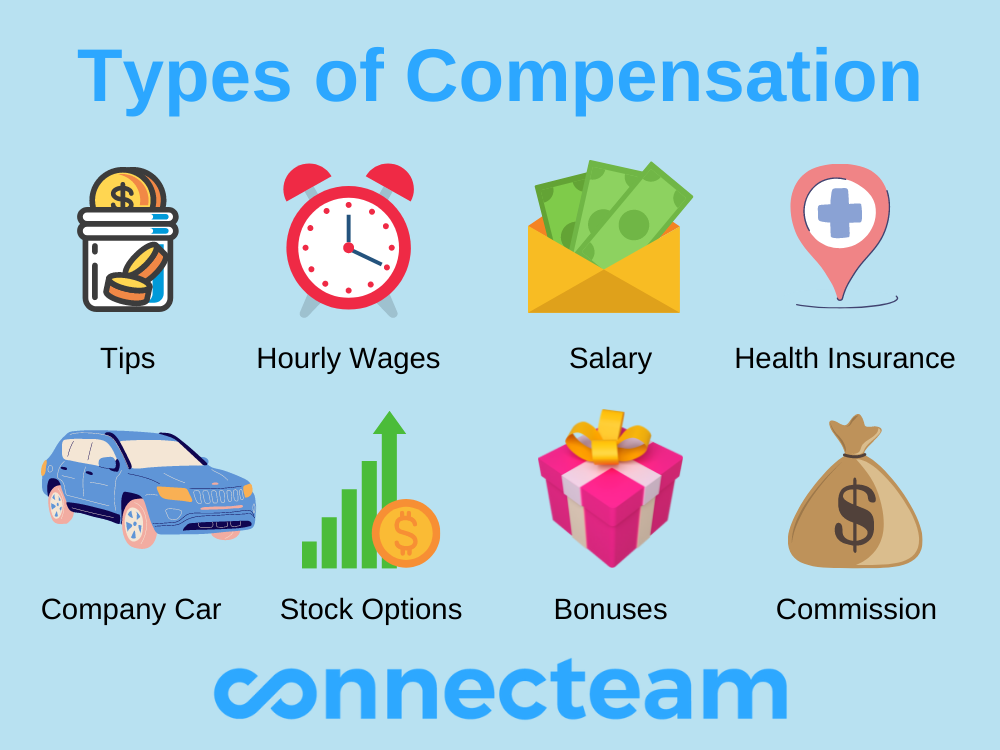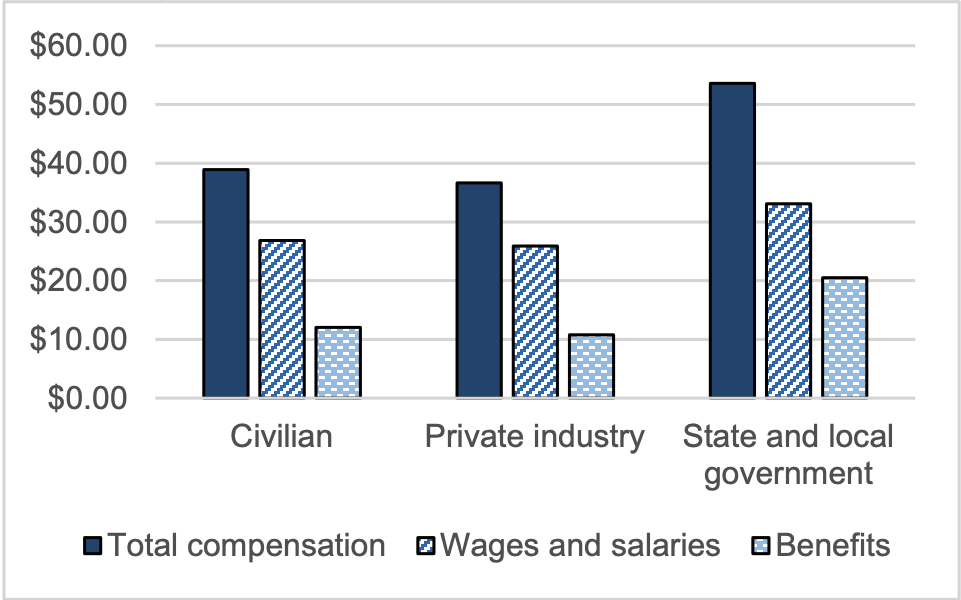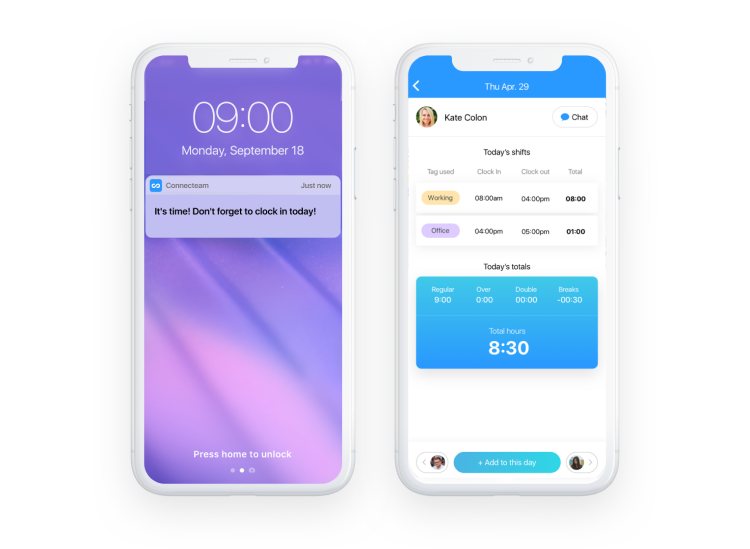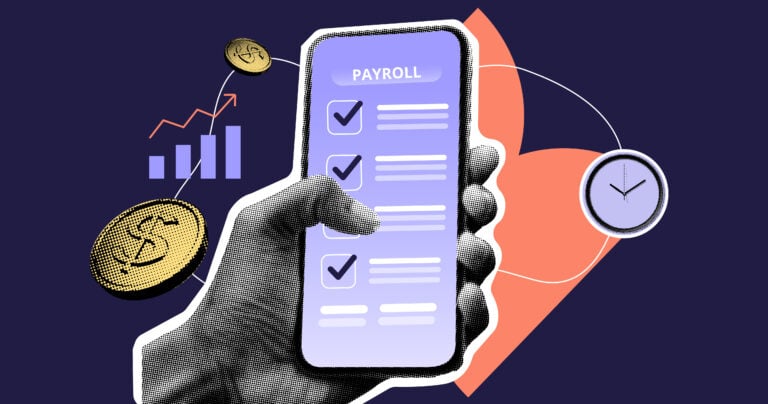There is a lot more to compensation than just a monthly paycheck. We’ve put together a detailed breakdown of what compensation is in business terms. We have also highlighted the many types you might need to know and how you can make this process easier.
I’d be lying if I said I was a finance expert. Don’t get me wrong – money’s great. And I enjoy seeing that paycheck at the end of every month.
But when it comes to big terms like compensation, I’d struggle to explain it to you off the top of my head.
On a superficial level, I get the idea that compensation means being paid for work. But you and I both know that there is a lot more to it than that.
Let’s break down what exactly compensation means, the many types that employees can receive, and the tools that companies can use to make compensation a smoother process.
What Exactly Is Compensation?
In business terms, we are referring to the money an employer pays their employees, usually as some kind of salary or the benefits attached to it.
Of course, compensation often means the money that someone is paid for a possession they lost or that someone else damaged. It can also be paid at the end of a lawsuit.
Coming from the Latin verb “compensare” (to “weigh against”), the idea of counterbalance is at the heart of compensation. Whether it be for work, time or expertise, monetary payment is usually how people are compensated.
How Do You Measure Compensation?
Working out the compensation for any given job is far from easy. As you might have guessed, there are plenty of metrics that go into determining fair rates for potential candidates for certain positions.
Here are a handful of factors that contribute toward how much compensation certain positions are entitled to:
- Job title
- Responsibilities
- Level of experience and education
- Average salary of specific job
- Job location, travel expenses
- Cost of living
- Availability of candidates
- Company size
But compensation will inevitably be measured differently depending on what kind of compensation you’re paying.
What Are The Different Types of Compensation?
In truth, there are many kinds of compensation that employees can be entitled to. But they can all pretty much be grouped into two main categories – either they are direct compensation or indirect.

Direct compensation – this is compensation that is literally in the form of money. This is usually base pay (salaries, hourly wages) or variable pay (bonuses and commission). This includes meal and rest breaks per state as well.
Indirect compensation – this is any other compensation that has a monetary value. While different companies have differing perspectives on what constitutes indirect compensation, benefits such as health insurance and contributions to a retirement plan are typical. Other examples include stock options, company-covered gym memberships, and tuition help.
Studies actually show that with an average of $10.76 per hour, benefits account for 29.4% of total compensation costs in private companies.
Non-Monetary Compensation – ironically, not all compensation is paid in money! Employees can actually get compensated for all kinds of things that aren’t necessarily notes or coins. These include things like fringe benefits, company cars, time off, and food. These perks can make certain job opportunities more attractive than others.
Direct Compensation: The Major Types
Direct compensation can actually be broken down into five main types: salary, hourly wages, commission, bonuses and tips. (Keep an eye on time theft when looking at the five main types of compensation.)

Salary and Hourly Wages
For the most part, employees are paid either hourly wages or salary, and at a specific pay period. In other words, this is the base compensation that employees are paid. According to the Bureau of Labor Statistics, salary and wages account for 70.6% of the average total compensation in private industries.
Ensure that you know the difference between exempt and non-exempt workers when configuring salary and hourly wages.
Hourly wages are usually allocated to less skilled workers, while employees with better educations, job titles and higher responsibilities usually receive a salary. This can also be determined by whether or not an employee is working part-time, full-time, 4/10 work schedules, short-term, long-term or as a freelancer.
With that said, this doesn’t apply to all workers. There are plenty of employees in non-managerial positions who receive salary compensation, as well as well-educated, highly skilled workers who are paid hourly. The Fair Labor Standards Act (FLSA) determines the rules for levels of compensation.
Commission
Most commonly used in sales, commission is allocated to employees as a percentage of the goals they meet. Usually, as the goal gets bigger, so does the commission.
Revenue can also determine how much commission an employee is paid. For example, if a salesperson’s commission is 5% and his sales for the month added up to $100,000, then that person would be paid an extra $5000.
There are also cases where the higher the salesperson sells a product for, the more commission they will take home. This is called gross profits. Employees may also be paid fixed amounts of commission per unit, also known as placement fees. Various kinds of commission include:
- Salary plus commission: salary and commission is part of the compensation package
- Straight commission: the employee only makes commission
- Residual commission: the employee makes commission through ongoing accounts
- Graduated commission: higher sales leads to a rise in commission
- Variable commission: a combination of the above.
Every company that would usually pay commission selects a specific type from the above list according to its own business model.

Bonuses
Another type of variable pay, bonuses are usually paid to employees from a wider range of industries. Many workers get paid bonuses depending on individual, team or company performance. They can be assigned quarterly, biannually, or annually. Spot-bonuses can be paid based on performance surrounding particular achievements or projects.
Incentive pay is slightly different from bonuses. This is usually put in place to motivate employees to perform higher – a forward-looking form of compensation.
Bonuses are a backward-looking form of compensation. They differ in that they aren’t necessarily linked to any kind of metric. Many companies pay employees Christmas bonuses or spontaneous bonuses after stressful quarters.
Tips
Tipping is another form of compensation that employees all around the world benefit from at different rates. In the US, tipping is a regular custom practiced in bars, cafes, restaurants, and other hospitality industries.
While tipping is voluntary in nature, it is usually expected that customers provide gratuity ranging from 15 to 20%, depending on the quality of the service they have received. It is difficult to quantify how much workers earn in tips, but it is common knowledge that many rely on them in order to make ends meet from month to month.
Now that you know the many different types of compensation, how can you make compensation management a more efficient process?
Compensation Made Easier
Easily track time to make payroll more efficient and improve compensation transparency. No more issues like time theft or buddy punching!

Technology Can Improve Compensation Management
Based on the information provided so far, it is clear that companies from various industries can benefit from using the latest technology to help make employee compensation easier. Connecteam is an ideal solution for companies looking to streamline their compensation processes.
Easy time tracking: Ensure automated and accurate compensation for your employees. Use the employee time tracking software and manage your worker’s hours, avoid time theft and make payroll processes more accurate and efficient (including easy timesheet export to Connecteam’s QuickBooks Online and Gusto integration). All forms of compensation are accounted for, including hourly wages, overtime, and double time.
Internal Communication: According to the Chicago Tribune, nearly a third of workers have had no communication with superiors about their compensation, and over half have only discussed it a couple of times. Transparency about all business-related matters, especially compensation, can only be beneficial for all parties. With Connecteam, improve internal communication about compensation through a variety of features, including 1:1 chats and updates.
Checklists/forms/reports: Digitize all paperwork such as expense reimbursement forms to automate information flow and make day-to-day operations more efficient.
Digitized Workflows: Managers can send read and sign forms, so that employees can approve any necessary adjustments to their compensation plan.
The Bottom Line On Compensation
As you can see, compensation isn’t such a complicated concept. In fact, it is very easy to understand once you break it down to its bare bones. When it really boils down to it, compensation is simply a fancy term for paying someone for the work they did for you.
Most compensation comes in the form of monetary payments. But as you have already learned from this blog, this isn’t always the case. Compensation can also be paid in non monetary ways, whether it be through meals or company cars.
And if you have the right tools/software, paying compensation to your employees will no longer be a tedious task. Gone are the days of pens and paper, spreadsheets and emails. All of your compensation needs can be met on one platform. (Read our complete guide on making the digital switch!)
Now that you know the basics of compensation and the tools to make the most of it, you are ready to pay your employees what they deserve.





